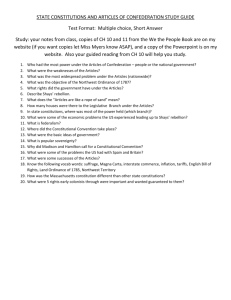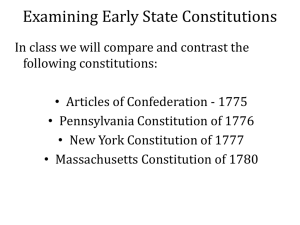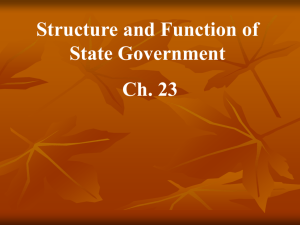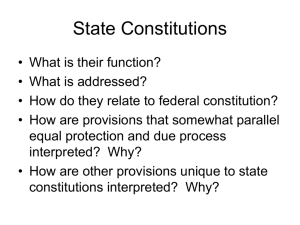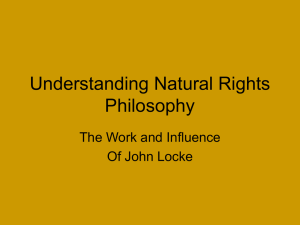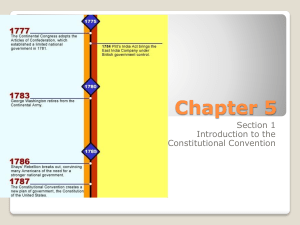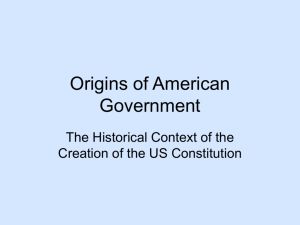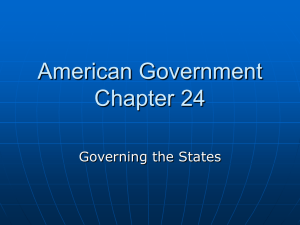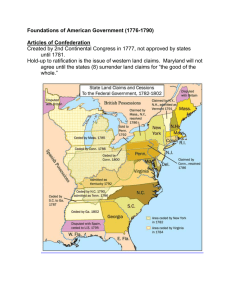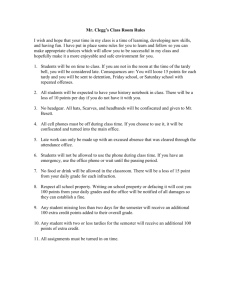PowerPoint
advertisement
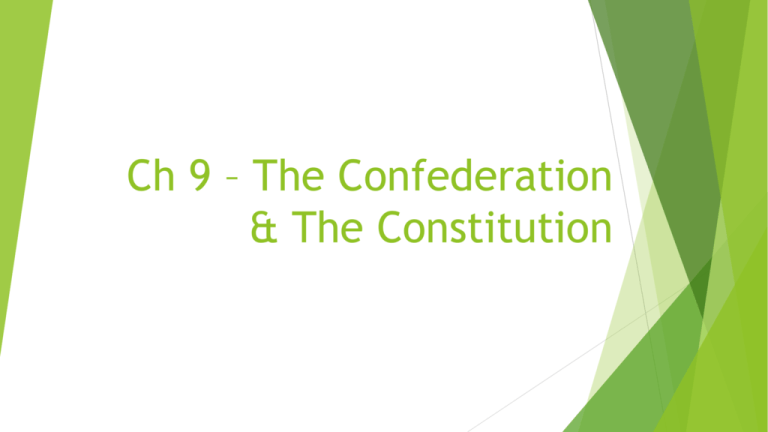
Ch 9 – The Confederation & The Constitution I. The Pursuit of Equality American Revolution was not a sudden radical change. Rather it was an accelerated evolution. A. Social changes included: States reduced property-based voting requirements Common folk desired titles of “Mr.” & “Mrs.” Employers called “boss” instead of “master” Indentured servitude ended Elitism is scorned (Society of Cincinnati = Continental Army officers’ exclusive club) Primogeniture laws eliminated Artisan/laborers trade organizations expand Separation of Church & State pursued Abolition of slavery movement begins (starting with Quakers in PA in 1775) B. Complete change lacking for African-Americans and women No state south of PA ends slavery Free blacks discriminated against Laws against interracial marriage Women not granted voting rights C. Women’s roles redefined “Republican motherhood” (def) New civic virtues would be cultivated by mothers’ devotion to her family Education opportunities for women expand II. Constitution-Making in the States 1776 – Continental Congress asks colonies to make new constitutions (thus changing their status to potential “states”) Americans view constitutions as contracts that define powers of gov’t Authority derived from the people, not the King States’ constitutions were similar: -bill of rights -annual elected legislators -weak executive/judicial branches vs. strong legislative branch Many state capitals relocated west away from seaports III. Economic Crosscurrents A. Land Distribution Royal lands confiscated Loyalist lands confiscated & broken into smaller parcels French Revolution reaction avoided due to abundance of cheap land B. Manufacturing No longer dependent on British imports Brandywine Creek (south of Philly) = waterwheels power mills C. Commerce British ports closed to Americans American merchants access new markets in Europe and Asia D. Poor Economy War profiteering and speculation had run rampant State gov’ts in debt High inflation Citizens worse off than before the war IV. Shaky Start towards Union A. Lack of unity Many suspicious of authority Conservative Tory element departed/fled Patriots’ common cause (freedom) achieved, so what next? B. Bad Economy 1786 – recession caused by flood of cheap British manufactured goods Young American industries damaged British seek both opportunity for profit and revenge

